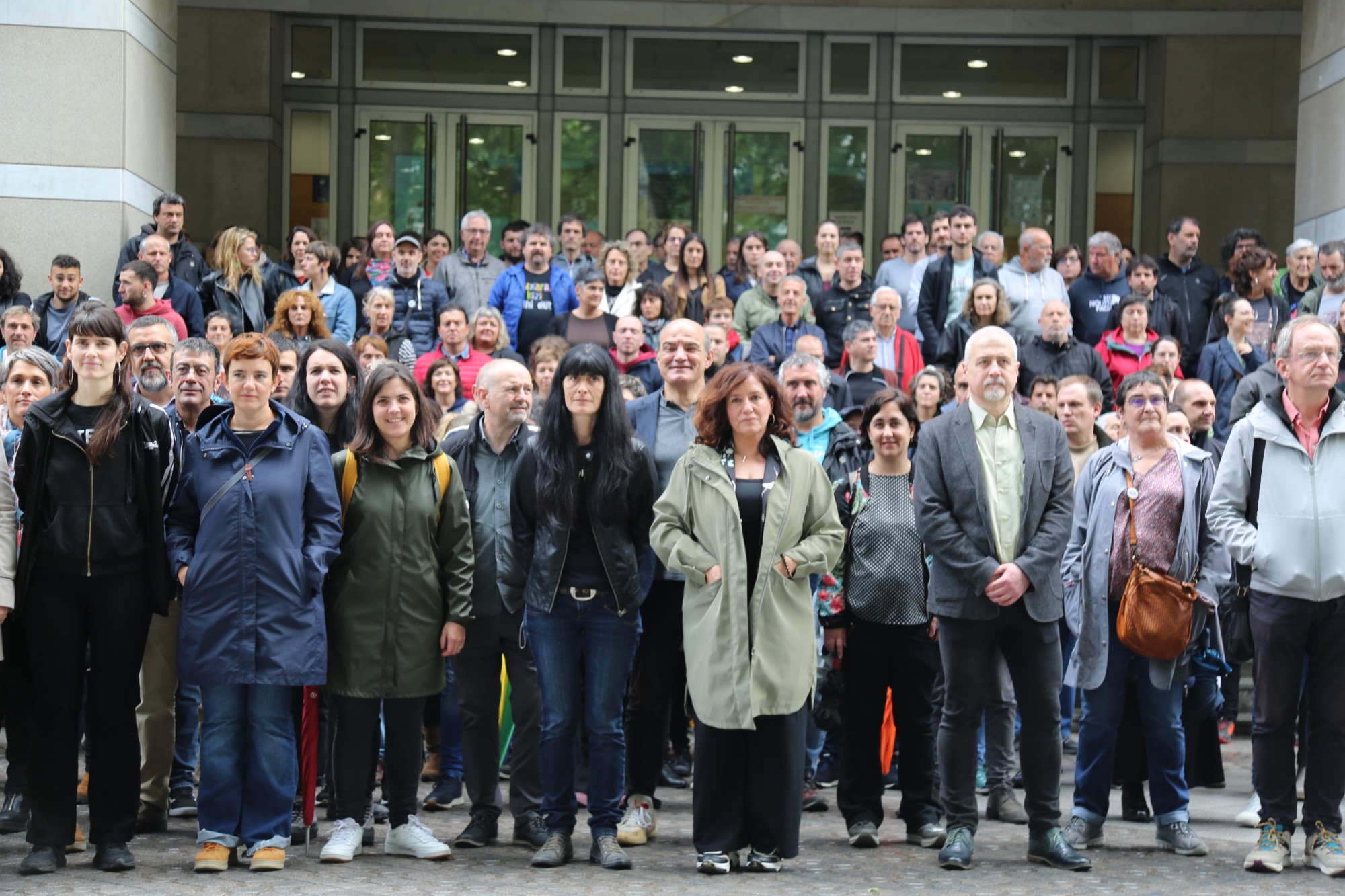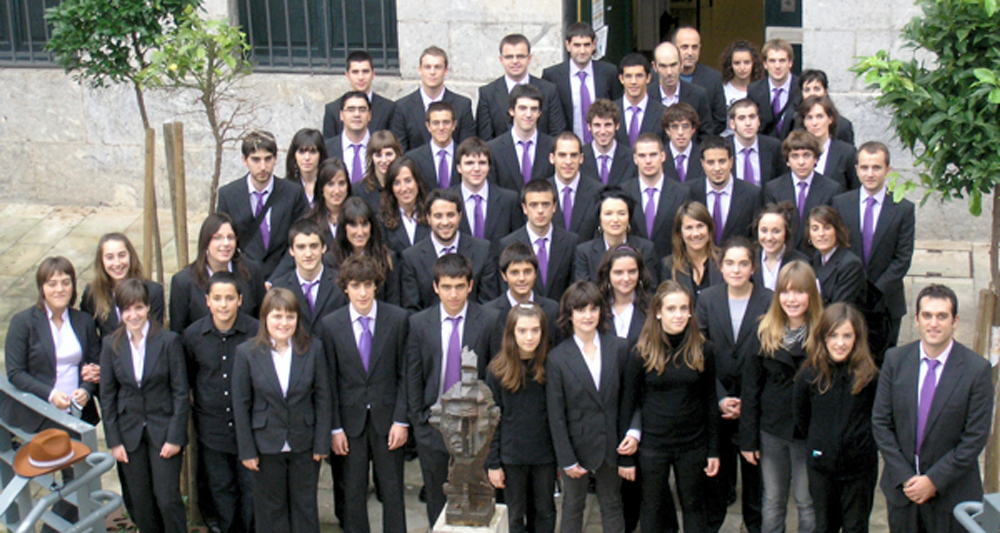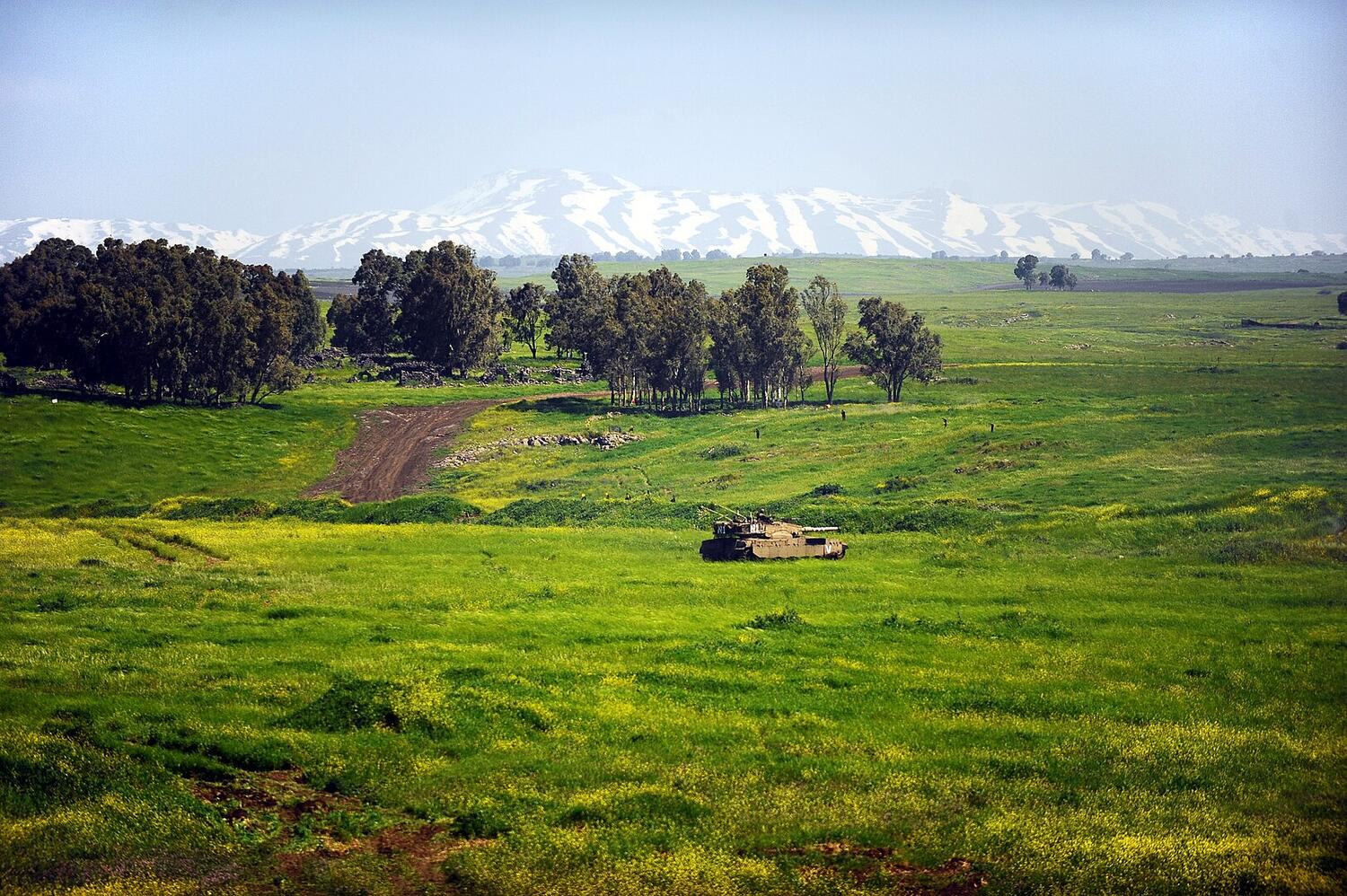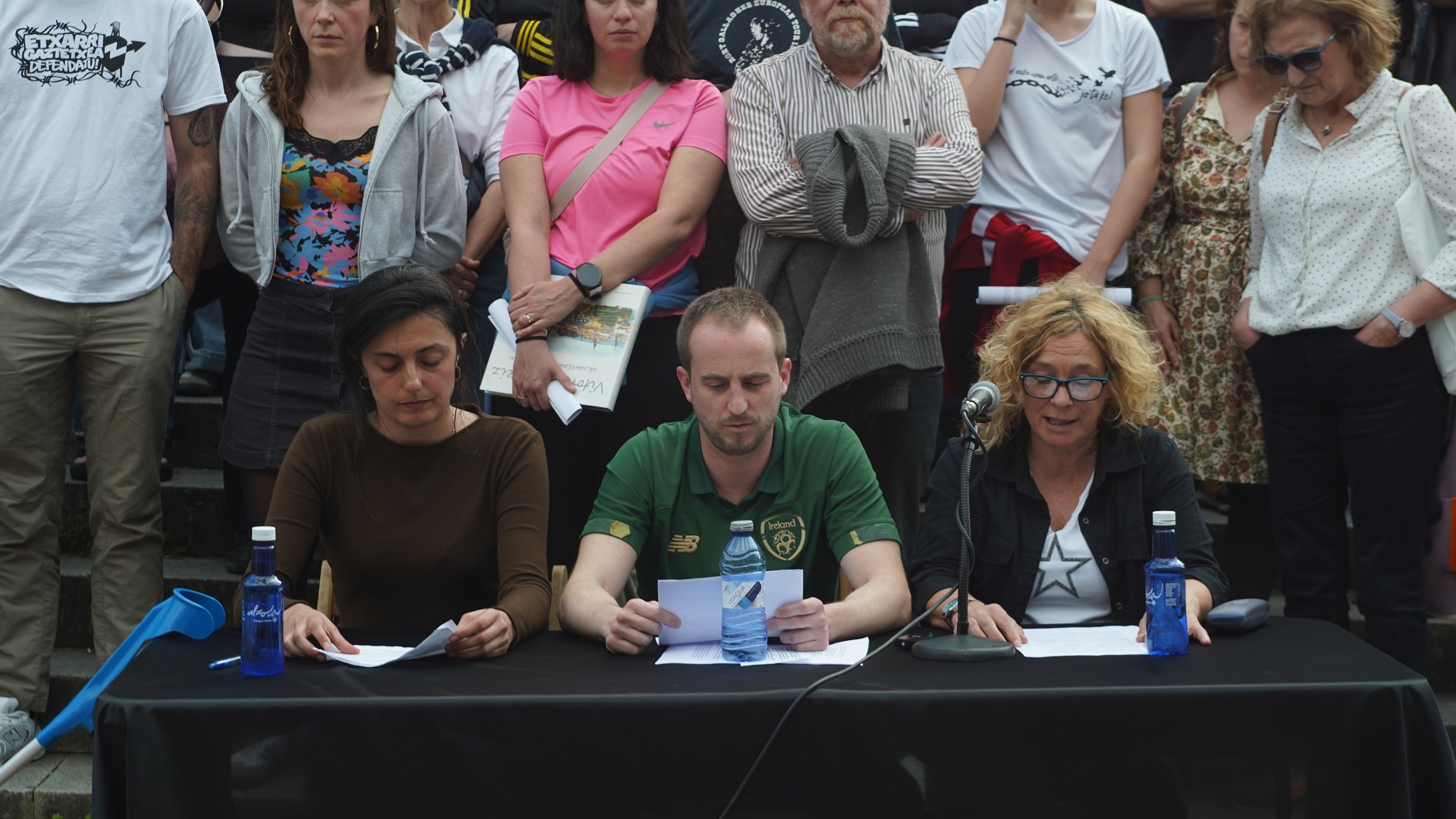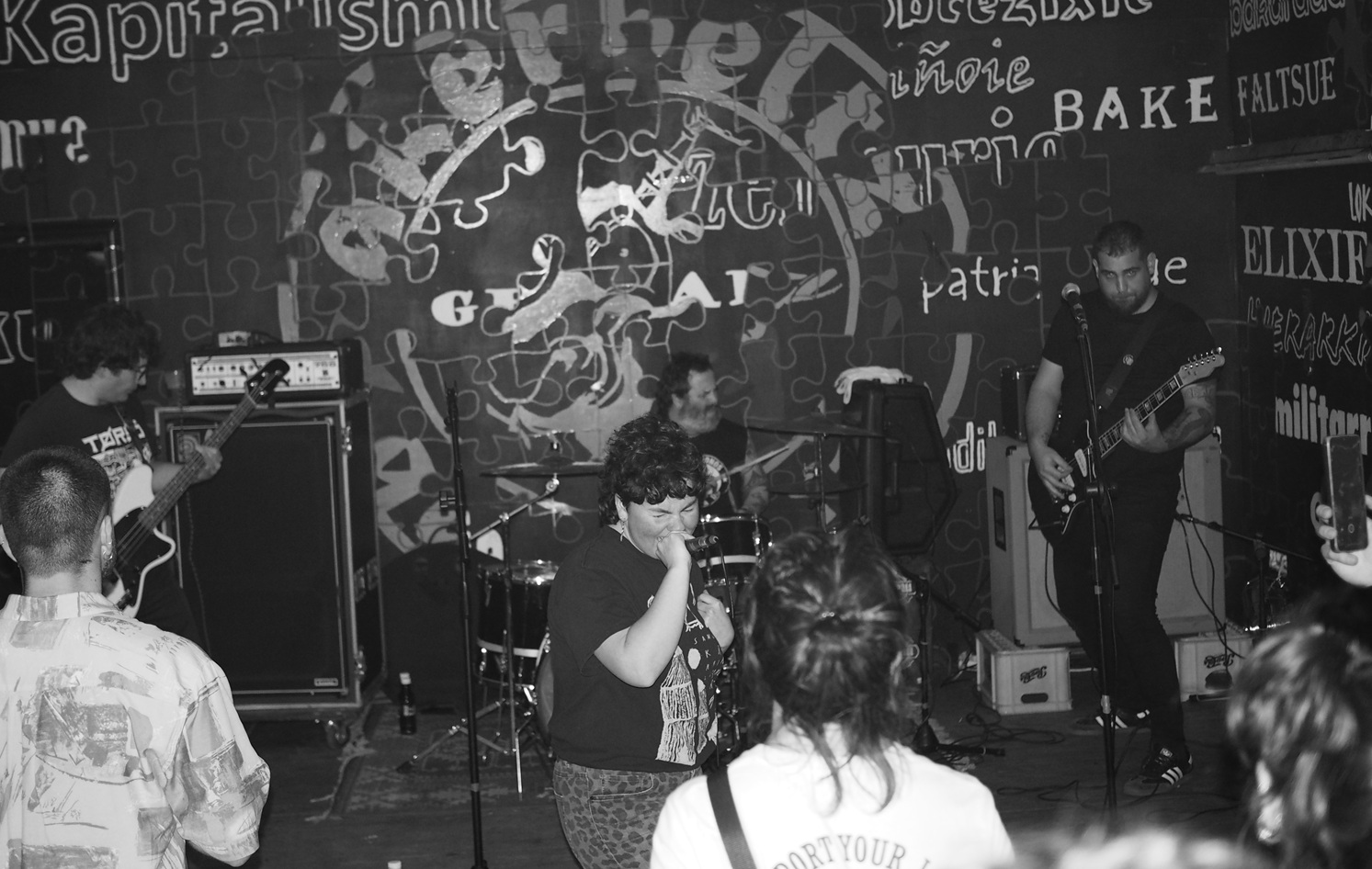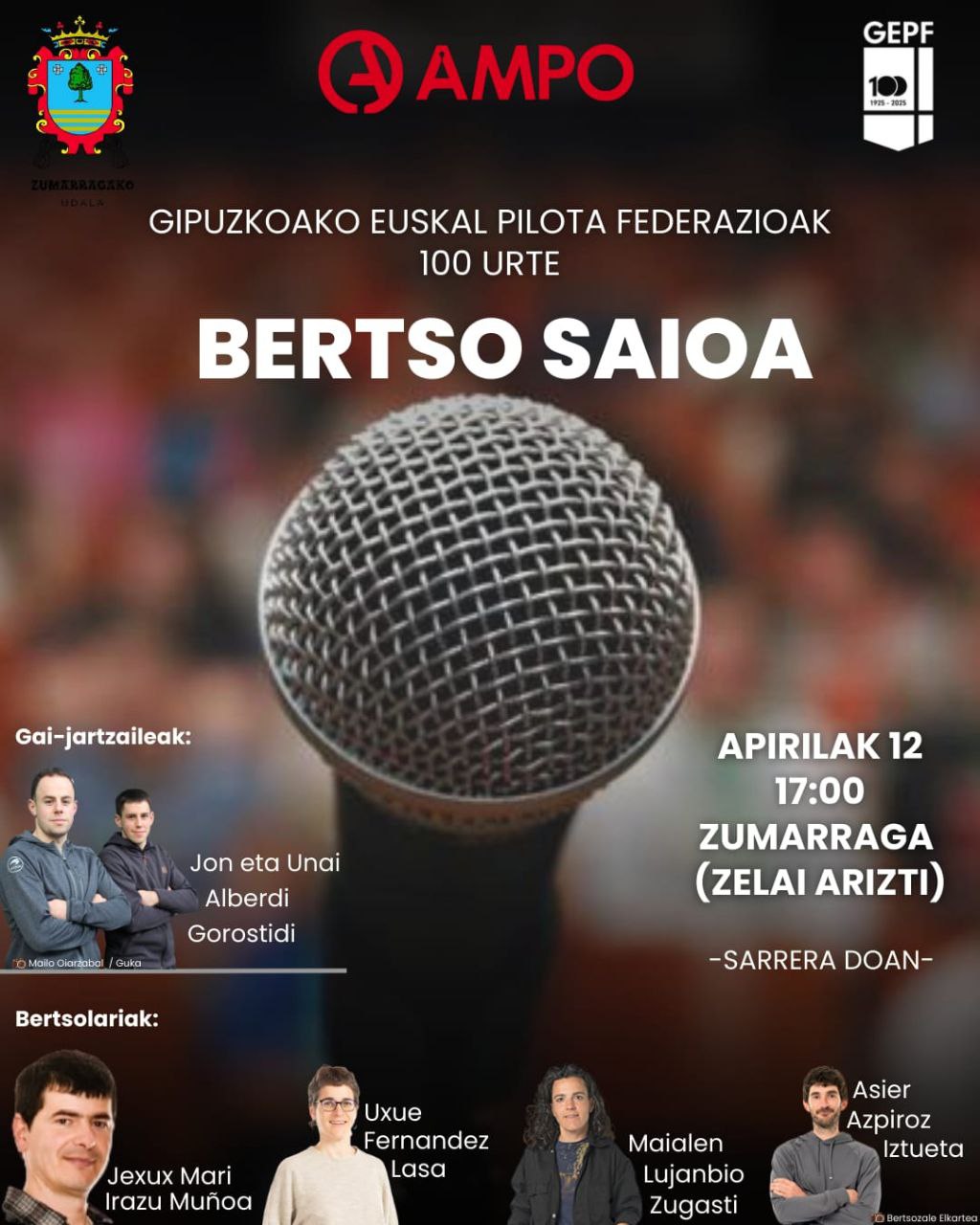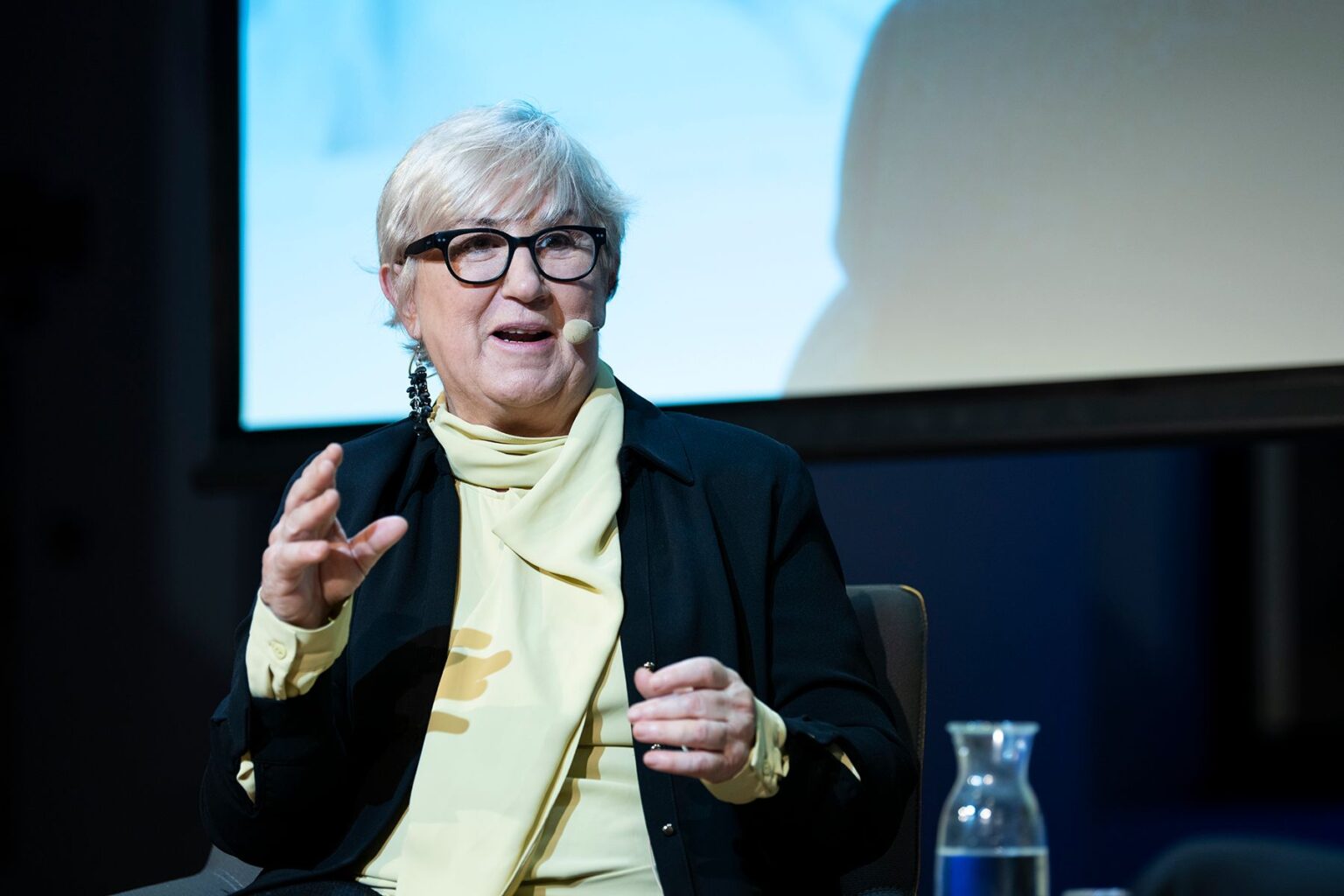"Not everything that is said in Basque is Basque"
- If the walls of the Mother Earth Restaurant spoke, many would be silenced, and then who knows what story Ugutz would invent. All we know is that it would surprise even the walls of Ama-Lur.
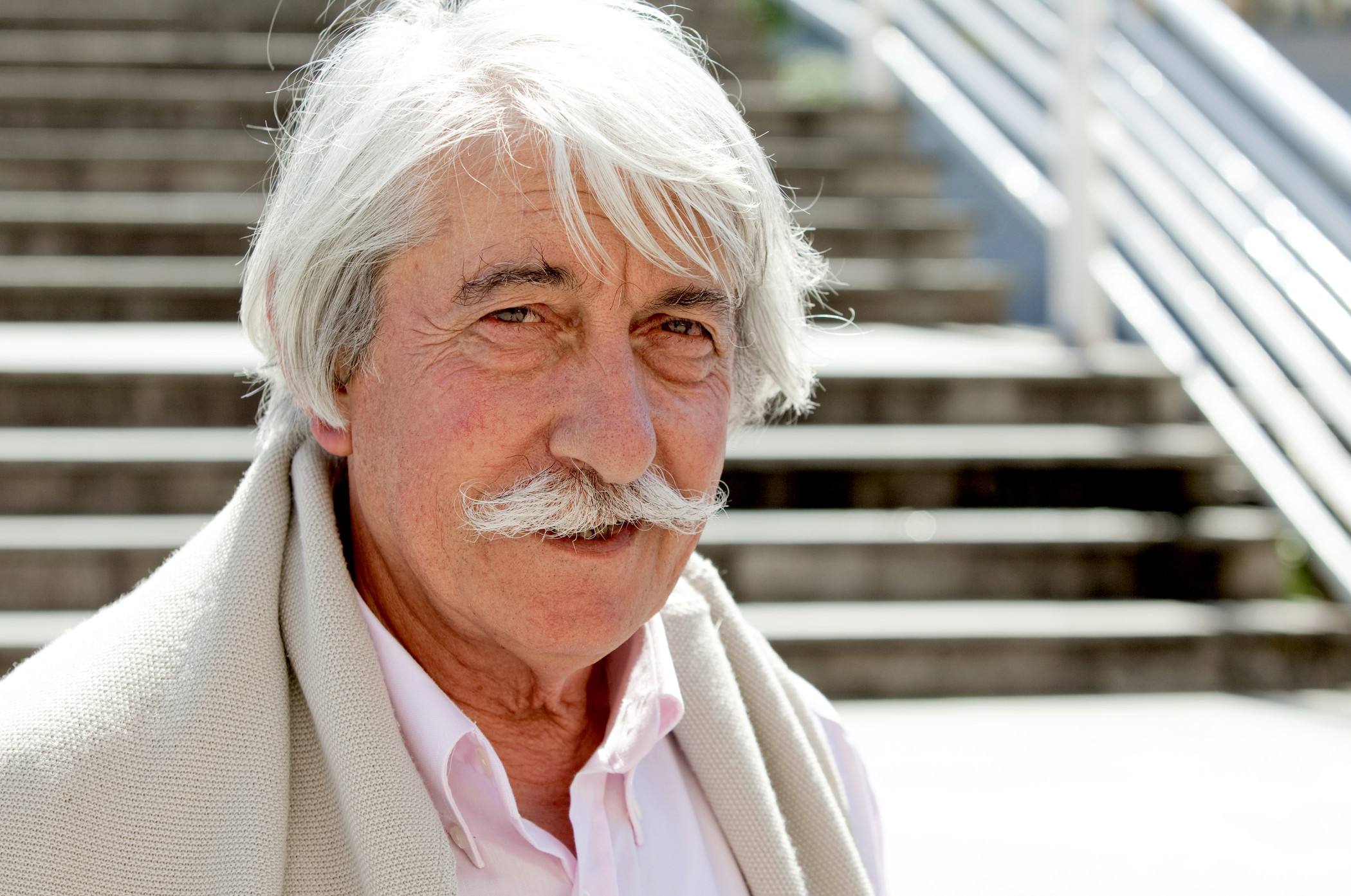
You were born a refugee, II. At the height of the World War.
I don’t have the impression that I was born in exile, I’m a Beskotzian and that’s it. The Beskoitzian of the hour, because I don't even want to mention the current ones. At school, my friends would tell me at best “Spanish, burrito, two kicks in the tripatzar”, little more. I have the memories of German time, high, nailed. The soldiers came home looking for eggs and milk. We had to move three times because we had the house in the manoeuvring area. It was misery, having to leave the house carrying clothes, cows and the rest. I remember walking in the doorway of the house with some kind of fireworks. No one knew what they were. Many years later I read in an encyclopedia that in the battles against the Russians in the east they belonged to the “organos of Stalin” that the Germans had stolen from the Russians, and that the rehearsal tests were carried out between Beskoitze and Hazparne. That's when I tied the strings.
In the family of eleven siblings it would not have been easy to tie all the strings together.
Looks like science fiction from today. There was no water, the little light was limited, there was no radio, no TV, nothing. But still, I have terrible childhood memories. We had a lot of fun, probably a little bit more than today's kids. We walked around Beskoitze and Beskoitze, occasionally we went to Hazparn, and very occasionally to Bayonne. To go to Bayonne, you had to take a bus that was powered by gas. He often came in full and stopped if he saw only one person on the side of the road, but if not... So, my mother told us to keep it in the bushes, and once the bus stopped, five or six kids would come out of the bushes. Later, it was our turn to go to school. Now I see the children vandalized like Robocop, who also go to the town square in the car, but we also went to school dressed very simply and walking on the wall days. Imagine that when we got to school, the rhyme had to be placed next to the fry that we considered to be the stove, because with hardened hands, we were not able to write. Then, as it was a beautiful time, in the mornings we heard the sounds of the dogs, the oxen on the line, the frog on the back, the Hazparn carrying wood, straw or grass in the carts. On the other hand, in the afternoon, when we got out of school, it was time to return, and the oxen knew where they had to go, but the owners were so drunk!
Being the father you had, you'd have heard politics at home.
Mom and Dad talked politics. But my father’s Basque was a little small, and politics was always about the Basque language. We were also forbidden to say a word about the Basque language at home, and since the pedagogical systems of the time were even more limited than our father’s Basque language, if we caught him talking about the Basque language, we understood that we shouldn’t talk like that. We were always told that we would learn Basque with ease outside, and that at least at home we needed to retain Basque. Time has proved them right.
You came to Bilbao when you were 13 years old. How did the eyes of the poor boy in Bilbao Beskoitz look?
We had heard a lot about Bilbao, but at first it was very tight, very suffocating. At the beginning, there was no construction in the Jesuit college and from there we were looking at the mountains every day. My brother and I had a certain amount of uneasiness inside and we were always playing pin, pan and pun. We were farm boys, walking outside, and up until then we'd put the stripes of two flocks in front of each other to see each other. It was a big change, but we relaxed fite, got used to it, and making friends and friends in it also helped us a lot. Then in school, it was all about “national spirit formation”, although we did little theory and a lot of gymnastics. A good man for being a phalangist was our teacher and when asked what anthem to play when Kaudillo came, one of us answered “la raspa” and even though he was thrown out on the street it was all a joke. Again, he asked his brother how many provinces there were in the Baskongadas, and that the brothers were seven. To anger, “Do we have news, or what? Oh, oh, oh, you can see where you are from!” he replied.
You also started to put into practice the cultural hobby that you brought from home.
In Bilbao, we started working on theatre in a group called Sparks. From this day on, what we were doing was very ridiculous, but it was in Basque, and we walked around town quite a bit. I remember that once, in the neighborhood of Larruskain in Markina, some old people cried when they saw the theater in Basque and the girls there! We were some puppeteers. If we didn’t have electricity, just get on a pole, plug it in and you’re done. We had enormous strength. We have always been singers, dancers and movers. For example, for me singing is culture, but above it is a way to get rid of the problems and concerns of the human being at the bottom.
Today, high, the word more and more obtuse, the singing more and more sinister, the culture less and less participatory...
Before the elders were not as cheerful as we were, because we were young, but they were nevertheless cheerful. Today you will enter the hostel and you will catch the old ones smiling and the young ones with a sad air in the view. Recently, when I was shopping, I was singing with myself as always. Some 17-18 year olds looked at me in amazement. “For you to sing with your finger is to hit the button, but those of us who are old-fashioned, we sing with the honesty!” I threw them. I don't like evolution. What can be done? I don't know. When I see people in the street wearing walkmans, I think they're not mentally healthy.
And what did you think in 1960, when you had to flee back to Beskoitz?
I got pretty bad. One day, the police arrived and took the two older brothers prisoner. Fite noticed that. Irkus was in the army, and we both thought that someone had accused us and they had taken the two older brothers in ignorance that the two younger brothers were in trouble. Then we both escaped. Eneko, it was hard, we were singing in Bilbao, we had acquired a lot of fame, and suddenly it was hard for me to leave everything. Fortunately, Beskoitze didn’t change too much, people were still Basque, and seeing old friends strengthened me. Very soon we founded the theatre group Beskoiztarra, and in the first year we gave the play Sorcerers at Etxaburu. Imagine, then the priest was in town, and he didn't want the girl and the boy to be confused, so the boy forced us to act alone. That's when I had to go to Bayonne to rent wigs, and I think it was more ridiculous than the play itself!
In 1968, you gave Matalas under the direction of Monzón, and you are later represented by more than one work by Daniel Landart.
Monzon was a very good director. If we finished the rehearsal at midnight, he would give us a round of applause and say, “You have done well, give it back!” and there, until three o’clock in the morning. When Landart’s Red-and-White gave, on the other hand, I remember that he included in the work an anecdote that happened in his village. In it, the neighbour divided a bill of 500 francs to a citizen, ordering him to give the other half if he voted in his favour. In one performance, the neighborhood of Landart's village sat right in front of Daniel, and I will never forget the face he set when he realized that the episode was his.
To many, Ez Dok Amairu changed his face and you weren't apart there either.
I remember that in an assembly of the Basques, we went up to the table to sing along with Mattin and Xalbador. Ours were not particularly modern songs, but we were talking about Basque, with the guitar, and while some told us that “we were going to bury the Basque culture”, others were enthusiastic. That day, Mixel Labegerie confessed to me that this was his lifelong dream, and soon after he began to music and interpret the words of Piarres Larzabal, from which another way of singing was born. But this reluctance was widespread, don’t think about it, because even in Bilbao, when we were singing, everyone thought only of the choral. How many underestimated us with a dry “esos con guitarra española”, of course in pure Spanish. But Ez Dok Amairu revolutionized many things and opened up a new and beautiful path for all of us.
Was it different between the North and the South?
When I was a refugee, the North was much more Basque than the South. You needed the awareness to be Basque in the South, just the Basque you could be in the North. But France has internalized many complexes, and the Algerian war has committed an enormous slaughter in this regard. The first kids used to say proudly, “I’m Basque, French but Basque,” and now they’re embarrassed. Today, not even many who know Basque will do it in Basque, and not even French, they will not give the local, but the imitation of Paris. It's amazing, incomprehensible. My children are in school, and those who are patriotic of vows speak French at the inn, and the villagers who consider themselves French speak Basque from morning till evening.
I mean, the border stays strong.
It may have disappeared from the Earth, but from the heads... Fortunately, among the patriots, the Northerners have come to the South more and more, and vice versa, but psychologically most people are limited. For a while, in the snow, I was blocked off on the highway for seven hours, and I began to talk to a great champion man like the Doorbell next to me. He was from Gipuzkoa, and when we told him we were Basque, he laughed with contempt. I have tried to give you my visions through jokes, to break these boundaries, to show you that if the French mocked the Basques, you can make fun of the Parisians, but don’t think that with humor you also convert many people.
“These are not the best times of all time...” says the less ancient song.
It’s amazing how Spanish humor has prevailed in the South. It's amazing how we've contaminated our thinking, how we've gone over to thinking about the edge. For example, “Leave the Basque Country alone!” is a hoax. It is “Leave the Basque Country in peace”. Same thing in the north. It is not worth thinking about the Basque language and translating it. The other day, a peto-peto Basque told me that he did not know if he was doing it right or wrong, that he was incapable of discerning the contamination of the contamination. The Basque language is dominant, and strangely enough, not everything that is said in Basque is Basque.
Until now we have believed that those in charge of copying books during the Middle Ages and before the printing press was opened were men, specifically monks of monasteries.
But a group of researchers from the University of Bergen, Norway, concludes that women also worked as... [+]
Florentzia, 1886. Carlo Collodi Le avventure de Pinocchio eleberri ezagunaren egileak zera idatzi zuen pizzari buruz: “Labean txigortutako ogi orea, gainean eskura dagoen edozer gauzaz egindako saltsa duena”. Pizza hark “zikinkeria konplexu tankera” zuela... [+]
Aposapo + Mäte + Daño Dolor
When: April 5th.
In which: In the Youth Center of Markina-Xemein.
---------------------------------------------------------
I’ve made my way to the cheese house with the shopping cart full of vegetables, and we’ve spent the evening cutting... [+]












